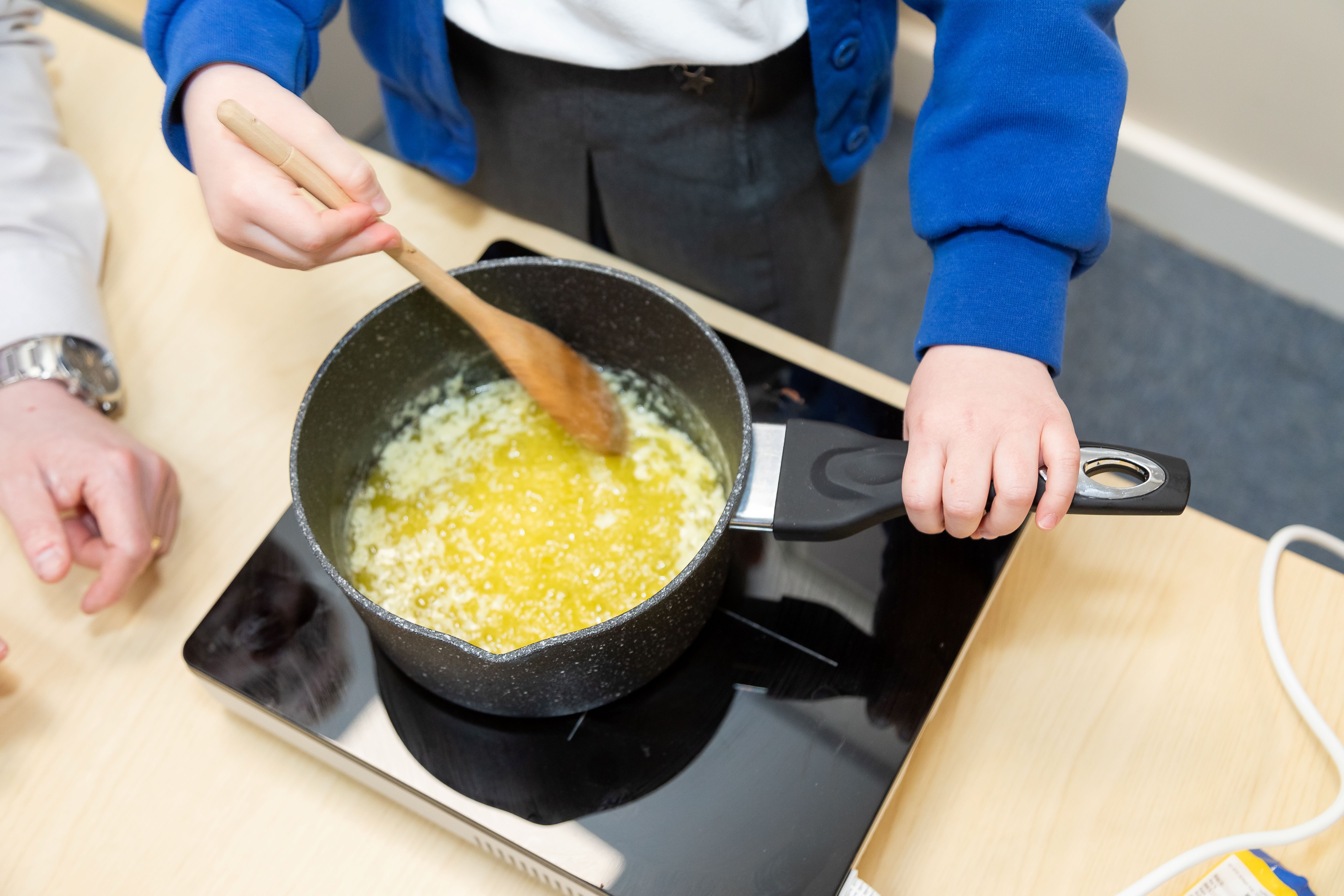
They must look for needs, wants and opportunities, and respond to them by developing a range of ideas to solve the identified problem. An emphasis is placed on the learning of practical skills combined with an understanding of function and aesthetics. Children will learn to reflect on and evaluate their own and others’ products for suitability of purpose.
At Manor Farm Academy, we are committed to equipping our students with essential problem-solving skills necessary for thriving in an ever-evolving technological landscape. Our Design and Technology curriculum is meticulously structured to promote the progressive development of knowledge and skills while nurturing each student’s creative potential, enabling them to design, create, and assess innovative products. Our goal is to inspire, motivate, and engage students in a dynamic problem-solving approach to Design and Technology. This initiative fosters creativity, critical evaluation, and resilience; attributes that are vital for success in their future endeavours beyond the academic environment.
We are committed to delivering a curriculum that recognizes and celebrates the accomplishments achieved through Design and Technology, both within the classroom and beyond. Our approach encourages students to draw upon their prior knowledge when engaging in problem-based tasks. We focus on fostering creative, technical, and imaginative thinking in our children. Moreover, we promote the development of their technical understanding and facilitate discussions about how various mechanisms operate. Our goal is to inspire enjoyment, fulfilment, and a sense of purpose in the process of designing and creating functional items.
By building on existing knowledge and skills, we ensure that students are equipped to know more, retain more, and comprehend more. We guide children in the selection of suitable tools and techniques for product creation while adhering to established safety procedures. In Key Stage 2, we aim to expand students’ understanding of the historical context, practical applications, and the significant impact of design and technology in our rapidly evolving world.
Additionally, we are dedicated to ensuring that children acquire the culinary skills necessary for their post-school lives.
The Leader for Design and Technology will take responsibility for overseeing, assessing, reviewing, and acknowledging exemplary practices within the subject area. Design and Technology will be incorporated into the curriculum on a weekly basis for one hour during alternate termlets for both Key Stage 1 and Key Stage 2. The curriculum for Design and Technology at Manor Farm Academy is meticulously structured and sequenced to meet the unique needs of our students.
Each instructional unit within the Design and Technology curriculum will be based on a real-world context that presents a challenge for students to engage with at the beginning of the learning unit. The instructional framework for each unit will follow a structured process, although various components may be integrated into individual lessons. The steps involved include conducting background research, establishing design criteria, exploring relevant skills, progressing through a design phase, engaging in a making stage, and ultimately conducting an evaluation.
Design and Technology lessons will typically encompass a blend of the following components:
At Manor Farm Academy, our students possess a clear understanding of Design and Technology and greatly appreciate the engaging and enriching experiences that this subject offers. This educational journey emphasizes learning that cultivates enjoyment, fulfilment, and a sense of purpose in the design and creation of functional products. It is designed to build upon existing knowledge and skills, enabling students to acquire a deeper understanding and retention of the material.
We encourage pupils to select suitable tools and techniques for their projects while adhering to established safety protocols. In Key Stage 2, the curriculum expands students’ awareness of the historical and contemporary applications of design and technology, along with its significance in an ever-evolving world. Furthermore, we prioritize the development of essential culinary skills that will serve our students well beyond their time in school.
During their studies in design technology at Manor Farm Academy, students across all year groups engage in a diverse array of educational activities and experiences.
For instance, in the reception class, students are tasked with designing and modelling emergency vehicles as part of their “People Who Help Us” topic, while also collaborating to construct a scarecrow for the Harvest celebration. In Year 3, students refine their culinary skills by preparing scrambled eggs, which involves cracking, mixing, and cooking the eggs. Meanwhile, in Year 5, students conduct interviews with reception classmates to gather market research on preferred toys. The insights obtained from this research will subsequently guide their design process for creating toys.
At Manor Farm Academy, we offer a recurring Cooking Club that provides students with the opportunity to enhance their cooking skills and contribute to their personal development.
In Year 5, students had the pleasure of participating in Lincolnshire Day at the Lincolnshire Showground. The activities included exploring the mechanisms of a windmill, preparing pizzas and burgers, and utilizing natural resources to craft decorations using tools such as hand saws.